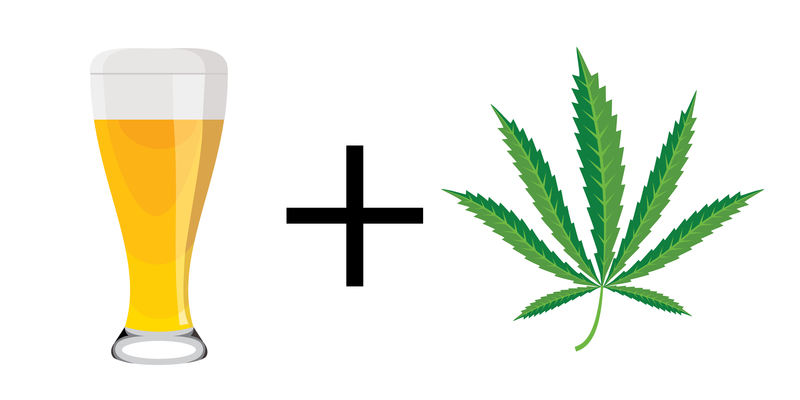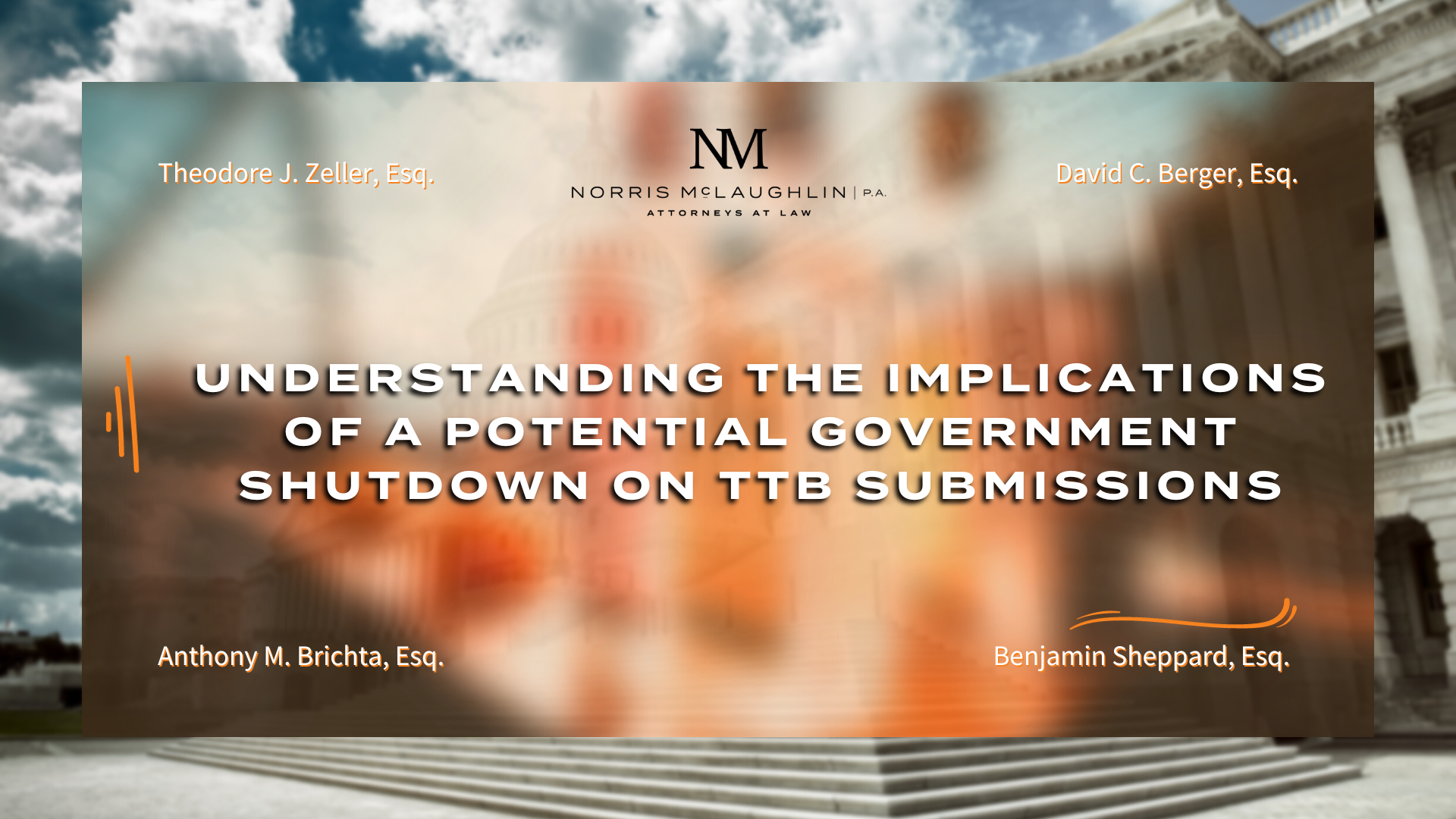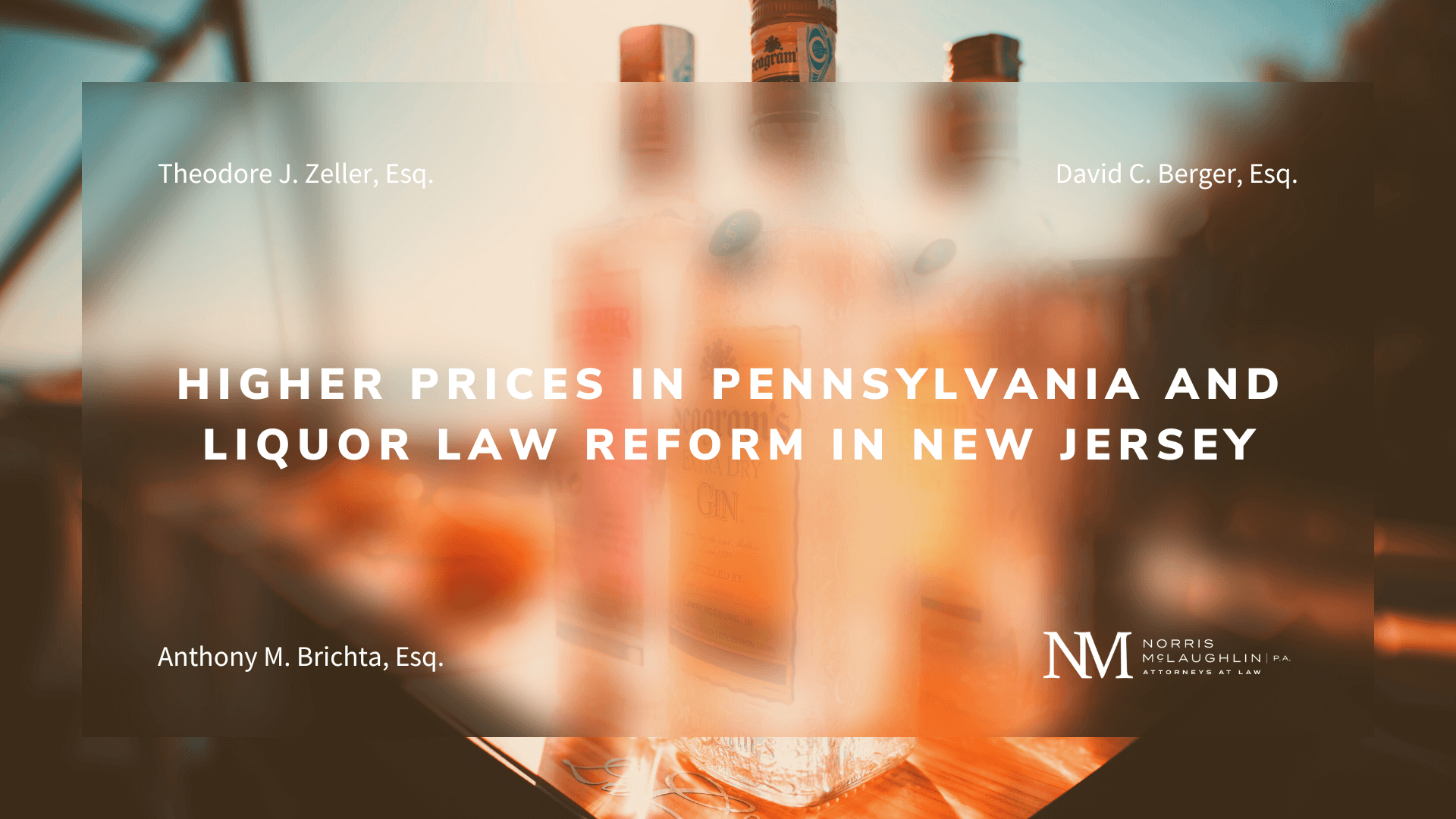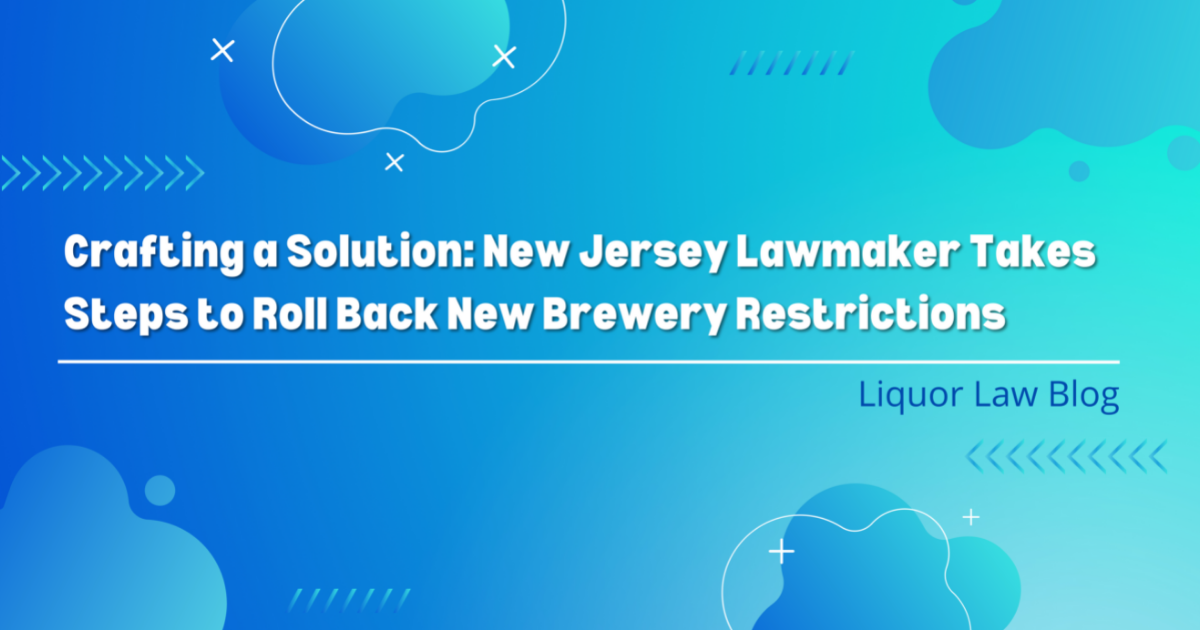Beer and Marijuana Don’t Mix

In light of New Jersey Attorney General Gurbir Grewal’s recent announcement that all marijuana cases in municipal courts be adjourned through at least September, many are hopeful that New Jersey will be legalizing medical and recreational marijuana in the near future. If that does happen, it will have a significant impact on many industries; and not just those traditionally thought of to be in the cannabis business.
For example, craft brewers have started to incorporate cannabis-based ingredients in their beers, but the question is - can those beers actually make it to the market in states where marijuana has been legalized?
The knee-jerk reaction might be “of course, cannabis is legal in that state.” However, state law is just one part of the analysis. Beers brewed with “nontraditional” ingredients require formula approval from the federal Alcohol and Tobacco Tax and Trade Bureau (TTB). Tetrahydrocannabinol (THC) and cannabidiol (CBD) are “nontraditional” ingredients triggering the formula approval requirement. So what is stopping the TTB from reviewing and approving beers containing these ingredients, especially when marijuana is legal in many states? Enter the Drug Enforcement Agency (DEA). THC and CBD are Schedule 1 controlled substances according to the DEA, and therefore they are illegal under federal law, as they are not yet viewed as having any proven medicinal purpose.
In September 2016, a Colorado brewery initially obtained TTB approval for a CBD beer, but within months, the DEA interjected, stating that CBD (which is non-psychedelic) is a Schedule 1 drug. As a result, the TTB told the brewery to surrender its formula. The TTB has since issued a statement that it will not approve formulas (or labels) for alcoholic beverages containing a controlled substance, including marijuana or substances derived therefrom, such as THC and CBD, regardless of whether the substances are legal under state law.
A Vermont brewery had brewed a CBD-infused beer, but after the DEA ruled that CBD is a Schedule 1 drug, the brewery ceased production of the beer. In Massachusetts, the state’s Alcoholic Beverages Control Commission has issued an advisory that it will remain unlawful to manufacture or sell beer with THC or CBD because the cannabis plant is considered a Schedule 1 drug, despite Massachusetts legalizing recreational marijuana. Oregon’s Liquor Control Commission likewise has said that marijuana-infused alcoholic beverages are prohibited, with a limited exception for hemp products that have in fact received TTB approval.
What is the “hemp” exception? Certain parts of the cannabis plant are excluded from the definition of marijuana under federal law, namely certain “hemp” products, such as hemp seed oil and sterilized hemps seeds. Accordingly, they are eligible for TTB formula approval. A handful of breweries have done just that, obtaining formula approval for beer brewed with hemp products.
Despite the anticipated legalization of cannabis in New Jersey, we expect Jersey’s Division of Alcoholic Beverage Control to take the same approach as Massachusetts and Oregon, prohibiting marijuana-based alcoholic beverages unless they have TTB approval (recall that the NJ ABC’s label approval process requires TTB approval). In the short term, we don’t expect to see any CBD beers in New Jersey.
But stayed tuned to see how the federal government reacts as more states legalize marijuana and whether New Jersey will adopt laws allowing “micro” cannabis licenses similar to the craft brewery model, which could open the doors for further uses of cannabis, such as alcoholic beverages.
For information regarding national and state liquor law matters or general manufacturing and distribution advice, please contact our Liquor Law, Licensing, Manufacturing, and Distribution Practice Group: Liquor Law Department Chair Theodore J. Zeller III, Esquire (tzeller@norris-law.com); David C. Berger, Esquire (dberger@norris-law.com) for Pennsylvania and New Jersey retail and manufacturing licensing; or contact our offices at 610-391-1800.



